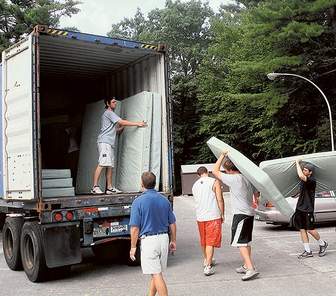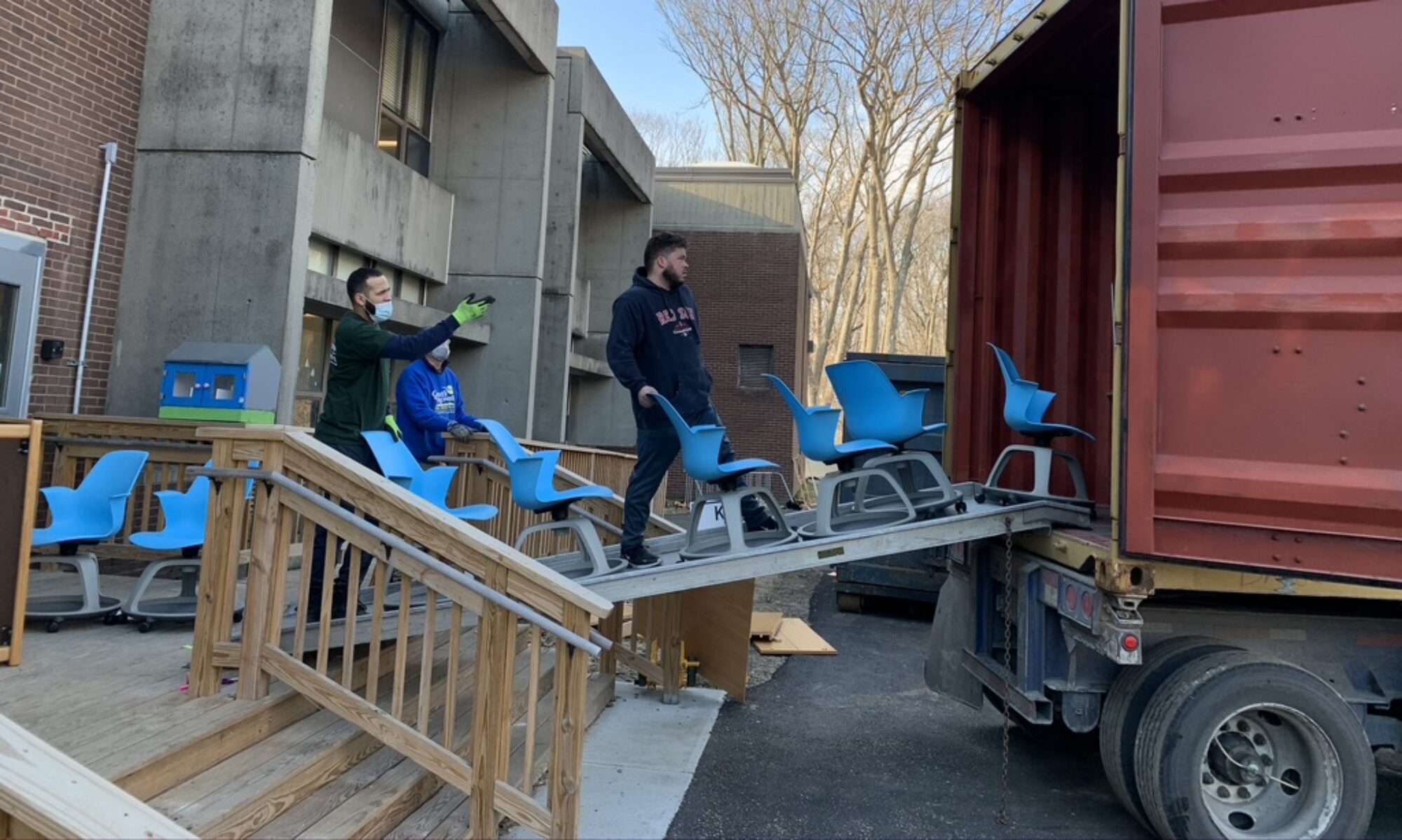The Concord Monitor (Concord, NH), January 25, 2010
By AMY AUGUSTINE, Monitor staff

When news coverage out of Haiti slips off the front pages, the real work is just beginning for employees of the Institution Recycling Network.
The Concord-based organization, created in 1999, works with hundreds of colleges and universities, hospitals, high schools, and private businesses across the country to collect and redistribute furniture, equipment, and supplies otherwise destined for landfills.
Its surplus property reuse program coordinates with dozens of charitable agencies worldwide to determine what supplies are needed where, and then ships everything from medical equipment to building materials to countries in need.
The earthquake that hit Port-au-Prince nearly two weeks ago put IRN employees in high gear. From a small office on South State Street, workers last week fielded calls from potential recipients and organized supply drives with clients.
After life-saving materials, supplies for stabilization – medical equipment, clothing, linens, stoves, cooking supplies and mattresses – will be needed next. Those shipments probably won’t be ready to send out for a few weeks, but preparation is key, said Stacey Clark, IRN’s surplus program manager.
Following stabilization supplies, items for reconstruction, such as building materials, furniture, beds, and medical and school furnishings, are next on the list. Reconstruction materials will be required for years to come but aren’t immediately needed, said Dana Draper, IRN’s chief operating officer. The company is in the process of acquiring additional warehouse space and storage trailers to collect the items, which are expected to start shipping out by March, he said.
“Most people want to do the right thing but may not realize the logistics involved with disaster relief,” Draper said. “You have to be on the ball. You’re dealing with agencies, figuring out what’s needed and trying to coordinate that with what you can get. It’s a lot of work.”
Here’s how the program works: When a U.S. organization, such as a hospital, school or business, has a surplus of goods or no longer has a need for used materials, it gets in touch with IRN. The company matches the surplus with one of its charitable partners, and arranges a pickup. In the Northeast, IRN either loads and ships materials directly from the contributing organization, or processes the materials through the company’s warehouse in Massachusetts, where they’re sorted and later shipped by boat to the receiving country. Elsewhere in the U.S., goods typically go straight from truck to port. Aid organizations in the receiving country arrange to pick up the shipment and get it where it needs to go.
Costs to remove and transport the items are mostly covered by the group getting rid of them, and the aid organizations pay the of the transportation expenses, as well as the costs to handle and distribute the surplus goods in the receiving country, Draper said.
It costs less to reuse the items than dispose of them, Draper said, and needy communities benefit from the goods that they would otherwise be unable to obtain.
The IRN, with a staff of about 15, also tracks the materials and provides detailed reporting about where they go. That’s important to many of the company’s clients, Draper said. “A lot of the generators we deal with want convenience,” Draper said. “They also want to know where the items are going and that they get to the right destination.”
The company is familiar with the relief protocol following natural disasters and delivered supplies to New Orleans after Hurricane Katrina and Indonesia following the tsunami, as well as Haiti earthquake relief, Draper said.
But disaster relief is only part of the program. In developing countries – and in parts of the U.S. – there’s an endless need for supplies and furnishings for economic and community development, and the company frequently ships goods to Third World countries and U.S. states with these needs, Clark said.
